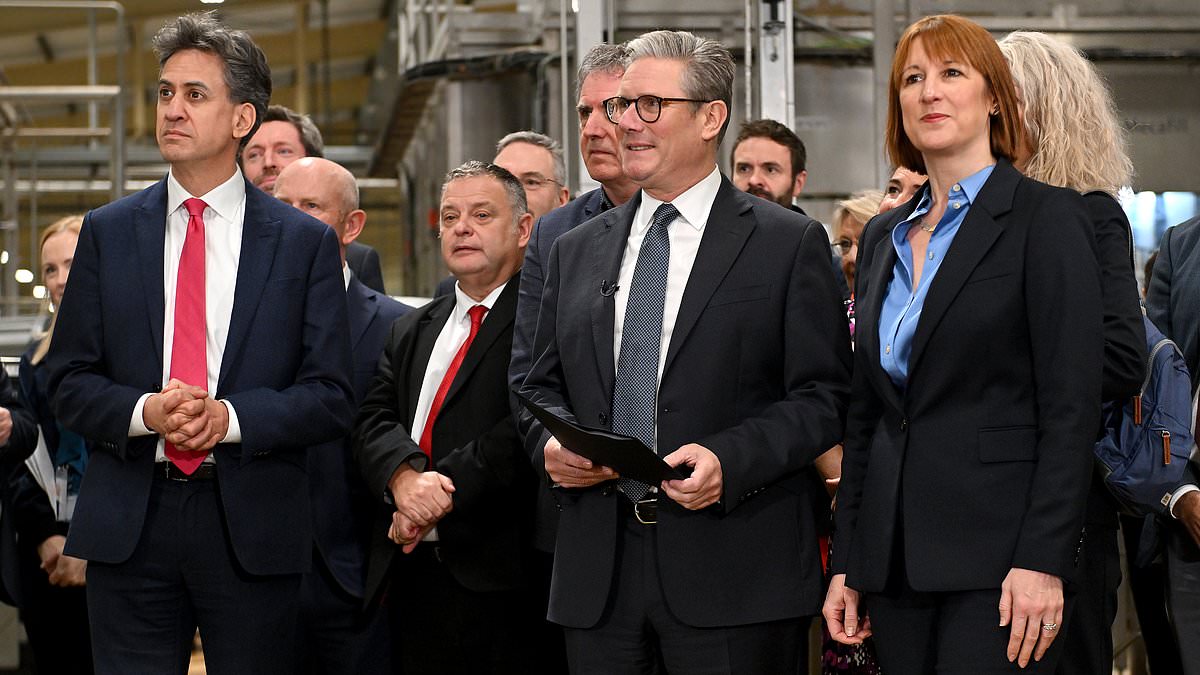Rachel Reeves is facing a scramble to balance the books in the Budget after seemingly abandoning a ‘mad’ plan to slash pension contribution reliefs.
The Chancellor has warned she needs to raise up to £16billion in the fiscal package on October 30, blaming the Tories for leaving a ‘black hole’.
Rumours had been swirling that Ms Reeves would cut reliefs for those earning above the higher rate.
But that prospect has apparently been dropped amid fears that it would cause chaos in the civil service and NHS – where pensions are far more generous.
Meanwhile, there are claims that the government might not be able to bring in as much as hoped from key Labour manifesto policies.
That could heap pressure on Ms Reeves to be tougher on inheritance taxes, including drawdown of pension pots, as she tries to shore up her coffers.
Businesses are also braced for pain with Savanta research finding nearly three-quarters expect their burden to increase – and two-thirds fearing their ability to operate will be hampered.
Teaching unions and tax experts have warned the January start date for imposing VAT on private school fees will spark turmoil, with suggestions it might even prove impossible. Downing Street again insisted today that the plan will go ahead in January.
Questions have also been raised about a move to ditch non-dom status, with Treasury concerns that wealthy individuals will simply relocate and revenues will be far lower than anticipated.
According to The Times, the original proposals on pension contributions relief would have seen public sector workers on £50,000 a year hit with an additional annual tax bill of £1,000.
But a senior government figure admitted it would be ‘madness’ to inflict large tax rises on workers who have just been handed a pay rise.
The IFS think-tank has urged ministers to stage a £2billion raid on better-off savers’ pension pots by slashing the amount that can be withdrawn as a tax-free lump sum.
The influential body said it was ‘hard to justify’ the current rule, which can effectively subsidise savings for those with up to around £1million.
Speculation has been swirling that retirement savings could be among the areas targeted in the Budget after Labour warned that tough choices were needed to repair public finances.
Shadow Chief Secretary to the Treasury Laura Trott said: ‘It is no surprise to see that Labour’s fiscal measures will raise no money, after all, we warned them time and time again during the election campaign that they wouldn’t. We produced a whole document showing their sums didn’t add up, which they completely denied.
‘So once again the Chancellor has been left red-faced, and to fill Labour’s black hole we warned about, she will either change the fiscal rules to borrow billions of pounds – racking up debt, leaving interest rates higher and for longer, and punishing families with mortgages, or she will raise taxes.’
Savanta found that 14 per cent of UK business leaders will look to base their firms elsewhere if taxes are hiked at the Budget.
Chris Hopkins, Political Research Director at the pollster, said: ‘There is clearly a real concern among UK business leaders about the Autumn Budget and what it will mean for them and their companies.
‘The only good news for the Chancellor is that the business community are at least expecting to be hit hard in October, so it is unlikely to come as a surprise to them.’
Ian Dyall, head of estate planning at wealth management firm Evelyn Partners, said: ‘The taxation of pension pots at death looks like it’s in the crosshairs at the Budget now.
‘Just a year ago the talk was all about whether the Conservatives would cut or even abolish inheritance tax. But the tables have turned on death duties in the last 12 months, and particularly since the General Election, as Downing Street has admitted the need for more tax rises.
‘Rachel Reeves is not short of encouragement from think-tanks, a couple of which are keen that IHT ‘loopholes’ should be closed, or that wealthy families should be prevented from making the most of certain reliefs. The problem is, one person’s loophole is another’s legitimate relief – or in the case of some family businesses, another’s lifeline.’
Under current rules, savers can withdraw up to 25 per cent of their pension as a tax-free lump sum when they reach the age of 55, up to a maximum of £268,275. The scheme costs the exchequer £5.5billion a year.
But the IFS said while there was ‘some justification’ for a scheme that encourages some people to save more, the scheme as it stands is ‘poorly targeted’.
In a study published last month, it said that 70 per cent of the benefit currently goes to those who were in the top fifth of earners when contributing to their pensions.
It recommended reducing the upper limit on the tax-free lump sum from £268,275 to £100,000.
That would affect one in five retirees and ultimately raise around £2billion a year, ‘with losses concentrated among the relatively wealthy’, the IFS concluded.
But it conceded that such changes may have to be brought in gradually as ‘people could reasonably argue that they had saved on the understanding that they would be able to take 25 per cent of their pension tax-free’.
